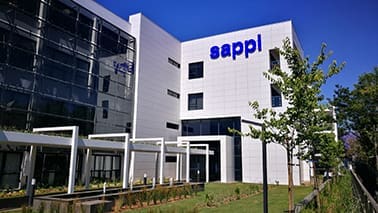JSE-listed paper and packaging giant Sappi is making bold strides in the bioeconomy, with plans to become one of the world’s leading producers of furfural: a key biochemical used in industries ranging from biofuels to pharmaceuticals.
Following the successful piloting of its proprietary furfural manufacturing process at Saiccor Mill in Umkomaas, KwaZulu-Natal, Sappi is now advancing towards full-scale commercial production.
The company confirmed in its latest Sustainability Report that the pilot plant has validated and optimised its furfural technology, demonstrating the ability to extract high-quality furfural from hemicellulose sugars in spent sulphite cooking liquor.
“The pilot plant successfully demonstrated that Sappi’s technology produces high-quality furfural,” the report stated. “Market tests showed that the furfural produced met even the most stringent requirements.”
A major investment in biochemicals
Sappi is currently finalising the engineering design and cost analysis for a full-scale plant, which is expected to be completed in the first half of 2025.
If approved, the $60 million or R1.1 billion investment would establish a commercial furfural facility with a capacity of 25,000 tonnes per annum, positioning the company as a significant player in the global furfural market.
The company sees furfural as a major value-add to its operations, maximising the use of wood byproducts and strengthening its position in sustainable biochemicals.
“By using this co-product, we are able to maximise the portion of the tree used to make renewable, value-added products,” Sappi noted.
Unlocking the chemistry of trees
Furfural, derived from non-food biomass, serves as a platform chemical in a wide range of applications, including adhesives, resins, lubricants, pharmaceuticals, and agrochemicals.
A significant portion of global furfural production is converted into furfuryl alcohol, a key ingredient in furan resins used in high-performance materials.
By integrating furfural production into its existing pulp operations, Sappi is ensuring a consistent, sustainable supply of this valuable chemical.
Unlike traditional sources like corn, which are subject to seasonal fluctuations, Sappi’s process leverages a year-round feedstock, providing a stable supply for industries reliant on furfural.
“We are unlocking the chemistry of trees and aligning with the circular economy by establishing a strong position in adjacent businesses, including fibrillated cellulose, furfural, lignosulphonates, and bio-energy,” the company stated.
“Extracting more value from each tree is at the core of our business model.”
A future powered by sustainable innovation
Sappi continues to explore partnerships with industry startups and technology firms to further commercialise bio-based products derived from wood sugars and acids.
As the company expands its footprint in the bioeconomy, its investment in furfural production marks a significant step towards diversifying its revenue streams while reinforcing its commitment to sustainable forestry and circular resource utilisation.
With a fully integrated and low-carbon production process, Sappi’s furfural innovation could reshape supply chains for bio-based chemicals, supporting a greener, more resilient industrial future.
